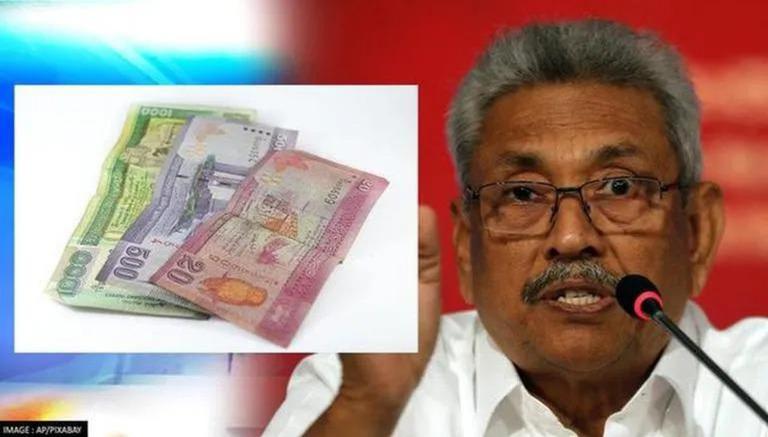Sri Lanka- nicknamed the pearl of the Indian Ocean- is facing its worst economic crisis ever. An acute shortage of foreign currency has left the
Sri Lanka- nicknamed the pearl of the Indian Ocean- is facing its worst economic crisis ever. An acute shortage of foreign currency has left the Rajapaksa administration unable to pay for essential imports, thereby triggering a never seen before battle for basics. The country has also steeply devalued its currency last month, taking the value of the Sri Lankan Rupee to 297.85 US dollars (on Saturday). All this has triggered massive protests in the country with people signaling that their patience has waned.
What has caused the economic crisis?
The island country was already battling foreign deficits for a few years but its reserve plummeted by around 70% in the past two years. This slashed the government’s purchasing power, limiting the country’s import of foreign goods including essentials like food and fuel. Furthermore, the inability to import from other countries triggered a never before seen inflation, with prices of food increasing by 25 % in the last month alone. It has also led to debilitating power cuts with residents living without electricity for as long as 10 hours at present.
Secondly, tax cuts also played a significant role in bringing Sri Lanka to its present situation. During his election campaign in 2019, Gotabaya Rajapaksa promised (the current Sri Lankan President) to cut the 15% value-added tax by nearly half and abolish some other taxes as a way to boost consumption and growth. He did fulfill his promise but this pressurized the financial institution. Meanwhile, public debt also increased from 94% in 2019 to 119% of its total GDP in 2021 triggering the IMF to speculate that Sri Lanka would not be able to repay debt in its designated timeframe.
In another wrong decision, the Rajapaksa administration imposed a ban on chemical fertilizers last year. While the decision was reversed later, the impact on the agrarian sector was hard-hitting with the critical rice crop being most affected.
Then came the deadly coronavirus pandemic, which sabotaged the country’s tourism sector. It is pertinent to note that the Sri Lankan economy is heavily dependent on the Tourism sector which contributes a total of 12.6 % to the country’s overall GDP, according to Knoema.
The aforementioned has now pushed the southeast Asian nation into an economic crisis so deep that experts are comparing its situation to that of Greece, which has been in international debt for decades. Meanwhile, the patience of residents is waning. Speaking to German daily DW, Silva, a local, revealed that there is no fresh milk or even milk powder for tea. “The prices of baby milk formula are exorbitant. It feels like a war where we have to ration our foods now. That sounds so silly given this day and age,” she added. Meanwhile, hundreds of people took to the street protesting against the severe economic crisis and further demanded the resignation of President Gotabaya Rajapaksa. In view of the situation, the Rajapaksa administration declared a public emergency in the island nation with effect on Friday. As the situation unfolds, the administration has knocked the doors of India, China as well as the IMF for financial help.
Thousands are swarming the streets in Sri Lanka to protest a food and fuel shortage. The island is suffering its worst economic crisis in decades. Take a look:pic.twitter.com/2MpLJm8Uap
— Steve Hanke (@steve_hanke) April 1, 2022
Massive protests have broken out in Sri Lanka to protest food & fuel shortages. People are demanding that President Gotabaya Rajapaksa resign, as the country suffers its worst economic crisis in decades. Take a look.pic.twitter.com/BuHtiRiAfQ
— Steve Hanke (@steve_hanke) March 26, 2022
(Image: AP)
www.republicworld.com
